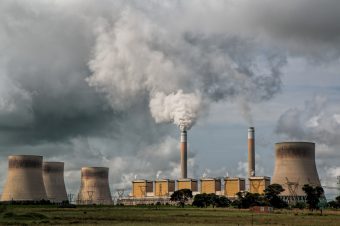
A year ago, a group of poverty-fighting organizations from the global North and South, including our own, began a discussion about coal.
We were keenly aware of how important energy is to improving poor people’s lives, but also concerned about climate change that is pushing these same people deeper into poverty. Environmental groups often highlight the dangers of coal pollution—the single biggest source of greenhouse gases as well as a source of air and water pollution—while the coal industry claim that expanding coal power is critical to eradicating poverty. This includes delivering energy to the billions without modern electricity or cooking solutions.
We wanted to resolve the apparent paradox between coal’s roles as purported energy hero and climate villain by looking at the evidence, beyond both the narrower focus of climate groups or vested coal industry interests. We published our findings in a paper launched this week, Beyond Coal: Scaling Up Clean Energy to Fight Global Poverty, coauthored by 12 development organisations.
Some of the findings are unsurprising. Rich countries must take the lead in phasing out coal for both environmental and social justice reasons. Most coal use is in rich countries plus China. Continuing it will push us past the agreed climate change limitof 2°C warming, pushing hundreds of millions into extreme poverty in coming decades. Of the G7 countries, the US and the UK are making progress on retiring coal power, while others, including Japan, are notable laggards. In fact, Japan is expanding rather than retiring its coal capacity.
It was clear from our analysis that the coal phase out could not end with rich countries. Most new coal plants are planned in the developing world, especially in Asia. With emissions from existing coal infrastructure, this will push the planet past 2°C. As World Bank President Jim Kim put it: ‘if the entire region implements the coal-based plans right now, I think we are finished … That would spell disaster for our planet.’
The good news is that we don’t need a radical expansion of coal power to eradicate poverty and address the world’s greatest development challenges.
More coal will not bring reliable, affordable and safe energy to the billions living in energy poverty. The vast majority of the energy poor live far from the grid and will be reached quickest and most cheaply by distributed renewable solutions (such as solar home systems or mini grids). Even for poor people near the grid, adding more coal power plants will do little as they cannot afford the costs of connection, and sector mismanagement leaves already existing plants idle much of the time. In the case of cooking, people need more efficient cookstoves and cleaner fuels, not more power for a grid which does not reach them.
Even the World Coal Association acknowledges that coal’s role in defeating energy poverty may be limited. Greater investment in distributed energy solutions and political will for the tricky process of power sector reform are the priorities.
Access to energy is important for improving incomes and for powering economic development. In 2013, there were 767 million people living on less than $1.90 a day, half of them in sub-Saharan Africa.
China is often and understandably cited as the major success in reducing extreme poverty, from 650 million in the early 1980s to approaching 200 million in the late 1990s. But using China’s example to justify further expansion of coal to fight poverty is a misreading of history. China’s runaway coal expansion only occurred in the 1990s – a decade after its huge gains in poverty reduction. While industrialization, and a related increase in energy supply, was an important driver for China’s growing economy, coal-powered industrialization was not the main driver of extreme poverty reduction.
Energy times have also changed. There are now cleaner sources of energy to power poverty reduction and economic development than coal. Renewable options are now cost-competitive with coal globally – despite the vast subsidies still pouring into coal. In the US for example, price of solar PV and wind have declined by over 80% and 60% respectively since 2009 alone, with global numbers catching up. In terms of job creation, the younger renewable energy industry has 9.4 million employed compared to the mature coal industry’s 7 million jobs. For sustainable economic development and decent job creation, it makes sense to look beyond coal to renewables.
China’s history with coal has also left a legacy of half a million premature deaths annually from air pollution. Given coal’s environmental pollution and the associated health impacts, as well as climate change, continuing to bet on coal means condemning the poorest to further impacts that can only make their situation worse.
So while rich countries must shoulder their historical responsibility by phasing out coal, developing countries also need to develop new energy pathways that can deliver development for their citizens, including the poorest, in cleaner and healthier ways.
Source: huffingtonpost.com



